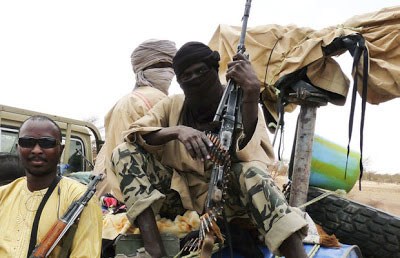
It seems these days that whenever any report is released by international organisations pertaining to some anomaly in the life of a nation, Nigeria is almost certain to be found at the bottom of things.
This time around, Nigeria has been ranked as the third most terrorised nation in the world by the International Criminal Court (ICC). The country is just above Iraq and Afghanistan which retained their first and second positions respectively.
In its 2018 Global Terrorism Index covering from December 1, 2017 to November 30, 2018, the ICC put Nigeria as the third most terrorised country in the world for the fourth consecutive time. It attributed the country’s position on the list to the increase in violence involving herder extremists and thousands of deaths committed by the deadly terrorist group, Boko Haram.
The ICC described Boko Haram activities as crimes against humanity, including attacks against women and girls and attacks against schools, teachers and schoolchildren such as the February 19, 2018, attack in which 113 girls from the Government Girls’ Science Technical College in Dapchi, Yobe State, were abducted. The group later released 107 of them, while five reportedly died during the abduction and one, Leah Sharibu, remains in captivity.
The report noted that Boko Haram was once the world’s deadliest terror group, but that its power had been weakened significantly since the peak of its powers in 2014. However, it remains the most active terrorist organisation in Nigeria and, until 2017, was the deadliest terror group in sub-Saharan Africa.
However, as Nigeria’s counter terrorism campaign in the North East, characterised by the combined efforts of the military, Civilian Joint Task Force and international coalitions whittled down the activities of Boko Haram over the past few years, other challenges arose in the form of clashes between nomadic herdsmen and local farmers during which herder extremists were reported to have attacked civilians and security forces across the country.
It was noted that from January to June 2018, over 1,300 people were reportedly killed as a result of violence between nomadic herders and residents in Plateau, Benue, Nasarawa, Adamawa and Taraba States and about 300,000 persons displaced, with the overall figure of deaths in armed conflicts put at 2000, including troops, terrorists and civilians in the period under review.
Added to the mix is the rising incidence of violent attacks by bandits in Zamfara State where armed men routinely attack communities, kill dozens and kidnap others. There is also the issue of cattle rustling by well armed gangs whose activities upset whole communities and at times pit some communities against one another.
In the south, the activities of cultists, kidnappers and Niger Delta militants continue to be a source of insecurity to the populace.
It is sad that Nigeria is in such unholy company of countries like Afghanistan and Iraq. Even war-torn, unstable countries like Syria, Yemen, Somalia and Libya seem to be better off.
As a newspaper, we are constrained to point out that this is a wake-up call on the federal government to take proactive and strategic measures to scale back and, if possible, end terrorist activities across the country.
It is noteworthy that the report credited Nigerian forces with diminishing the power of Boko Haram terrorists in the past few years, successfully dislodging the group from its spiritual base in Sambisa Forest, Borno State, leading the current administration to declare it ‘technically defeated’ and only able to hit soft targets. However, its recent resurgence and boldness in attacking and overrunning military bases is a pointer to the fact that the war is far from over.
We commend the initiatives already taken by the Buhari administration so far, notably in rallying the leaders of countries in the Lake Chad basin from where the three factions of Boko Haram operate at the moment. Their collaboration would sound the death knell of the insurgents.
Already, the president has ordered the service chiefs and the defence minister to relocate to the north east to physically oversee the war against the insurgents.
We also encourage the military forces to restrategise its approach to the war against terror. They should base their strategy more on intelligence and the use of modern communication technology which would allow them to monitor and strike the terrorists with precision from distance. Such technology is available and in wide use.
It is our considered opinion that the present administration should study and, if possible, copy the strategy adopted by the Jonathan administration to decimate the insurgents in order to enable the general elections to hold in the North East in 2015.
For the herders-farmers conflict, the federal government has also taken extensive measures to avert such crisis in the future by recommending and pledging to support herders to develop cattle ranches and colonies.
These and other measures will help to curtail terrorism and improve the overall security of life and property in the country.
END

Be the first to comment